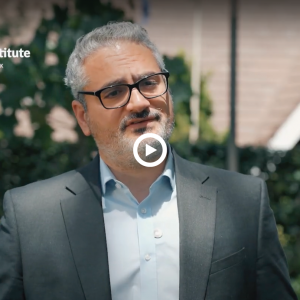Mohanad Hage Ali, Deputy Director of Research at the Carnegie Middle East Center in Beirut, reflects on his team’s engagement in the MENA region through the XCEPT project. Focusing on research in the border areas of Yemen and Saudi Arabia, he explains how these regions reveal early signs of wider trends such as state fragility, the abdication of state authority, the rise of local actors and the spread of transnational networks.
Through the XCEPT project, his team was able to collaborate with institutions across the Middle East, East Africa and Asia, challenging the idea that regions must be studied in isolation. Regular exchanges between local researchers, and shared case studies, helped build a deeper understanding of border dynamics and how they mirror or even predict national and regional shifts.
Hage Ali also highlights how this approach improved policy engagement and enabled stronger dialogue with policymakers, mediators and the public. Looking beyond the project, he emphasises the value of cross-regional collaboration and the need for researchers to draw from global evidence rather than remain confined within regional silos.




